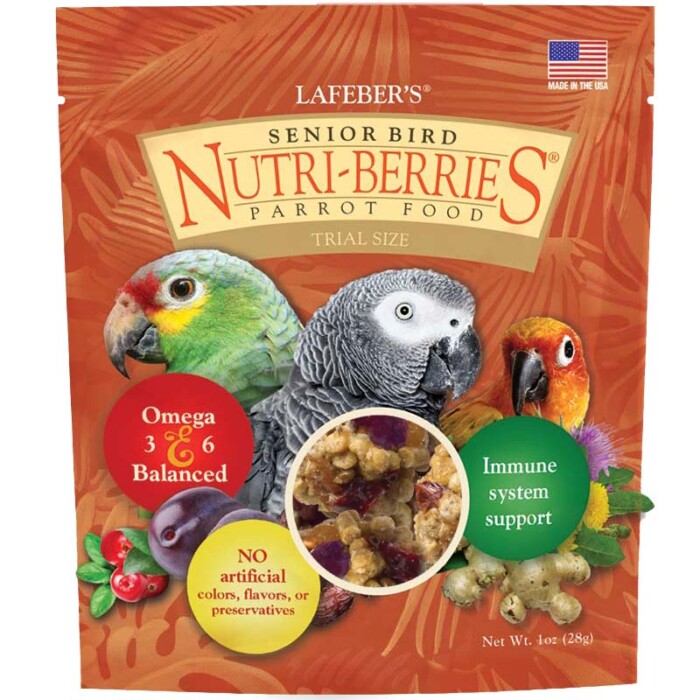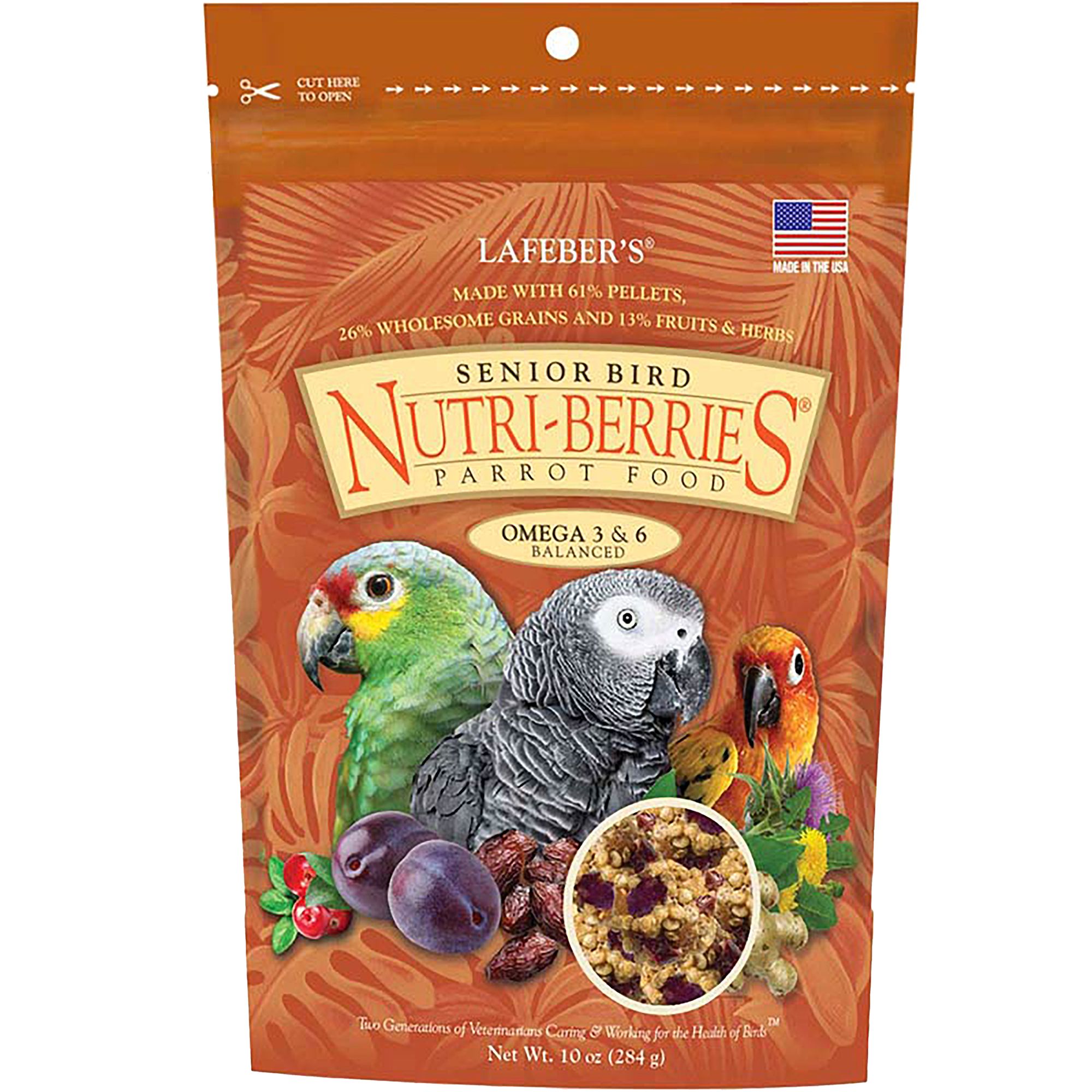Nourishing Wisdom: A Guide to Natural Foods for Senior Parrots
As our feathered companions gracefully age, their nutritional needs evolve, much like our own. Senior parrots, often defined as those over 20 years old (though this varies by species), require a diet tailored to support their aging bodies, maintain their vitality, and prevent or manage age-related health issues. While commercially available senior parrot diets can be a convenient option, focusing on natural foods can offer a holistic and enriching approach to their well-being.
This comprehensive guide explores the world of natural foods suitable for senior parrots, providing insights into the essential nutrients, appropriate food choices, and practical tips for creating a diet that celebrates their golden years.
Understanding the Nutritional Needs of Senior Parrots
Senior parrots often experience several physiological changes that affect their dietary requirements:
- Decreased Metabolism: As parrots age, their metabolism naturally slows down, leading to reduced energy requirements. Overfeeding can result in weight gain and associated health problems like fatty liver disease.
- Reduced Organ Function: The liver and kidneys, vital organs for detoxification and waste removal, may become less efficient. A diet high in toxins or difficult-to-process substances can further burden these organs.
- Joint Problems: Arthritis and other joint issues are common in older parrots. Nutritional support for joint health becomes crucial.
- Weakened Immune System: The immune system’s ability to fight off infections may decline, making them more susceptible to illness.
- Sensory Changes: Vision and taste perception can diminish, affecting their appetite and food preferences.
Therefore, a senior parrot’s diet should prioritize:
- Lower Calories: To prevent weight gain and obesity.
- High-Quality Protein: To maintain muscle mass and support overall health.
- Essential Fatty Acids: To promote healthy skin, feathers, and brain function.
- Vitamins and Minerals: To bolster the immune system and support vital organ functions.
- Antioxidants: To combat cellular damage and reduce the risk of chronic diseases.
- Fiber: To promote digestive health and prevent constipation.
- Hydration: Adequate water intake is crucial for kidney function and overall health.
Natural Food Choices for Senior Parrots
-
Fruits: Fruits offer essential vitamins, minerals, antioxidants, and natural sugars for energy. However, they should be offered in moderation due to their higher sugar content.
- Berries: Blueberries, raspberries, strawberries, and cranberries are packed with antioxidants and vitamins.
- Pomegranates: Rich in antioxidants and may help with joint inflammation.
- Papaya: Contains enzymes that aid digestion.
- Mango: A good source of vitamins A and C, but offer in moderation due to sugar content.
- Apples (without seeds): Provide fiber and vitamins.
- Bananas: A good source of potassium, but high in sugar, so offer sparingly.
- Melons: Watermelon, cantaloupe, and honeydew are hydrating and provide vitamins.
-
Vegetables: Vegetables are nutrient-dense and lower in calories than fruits, making them a staple in a senior parrot’s diet.
- Leafy Greens: Kale, spinach, collard greens, and romaine lettuce are rich in vitamins, minerals, and fiber.
- Cruciferous Vegetables: Broccoli, cauliflower, Brussels sprouts, and cabbage are excellent sources of vitamins, minerals, and antioxidants. Lightly steaming or cooking these vegetables can make them easier to digest.
- Root Vegetables: Carrots, sweet potatoes, and beets are good sources of vitamins and fiber. Cooked sweet potatoes are easier to digest and provide vitamin A.
- Peppers: Bell peppers (red, yellow, orange, green) are rich in vitamin C and antioxidants.
- Squash: Butternut squash, acorn squash, and zucchini are good sources of vitamins and fiber.
- Cucumbers: Hydrating and provide some vitamins and minerals.
-
Grains and Seeds: These provide carbohydrates, protein, and essential fatty acids.
- Cooked Whole Grains: Quinoa, brown rice, oats, and barley provide complex carbohydrates and fiber. Ensure they are cooked thoroughly and offered in moderation.
- Sprouted Seeds: Sunflower seeds, pumpkin seeds, and sesame seeds are a good source of protein, healthy fats, and minerals. Sprouting increases their nutritional value and digestibility.
- Chia Seeds: Rich in omega-3 fatty acids and fiber.
- Flax Seeds: Another excellent source of omega-3 fatty acids. Grind them before feeding to improve absorption.
-
Nuts: Nuts are a good source of healthy fats, protein, and minerals, but they are also high in calories. Offer them sparingly as treats.
- Almonds: A good source of vitamin E and calcium.
- Walnuts: Rich in omega-3 fatty acids and antioxidants.
- Pecans: Contain antioxidants and minerals.
- Macadamia Nuts: High in fat, so offer very sparingly.
- Avoid: Peanuts are prone to mold and should be avoided.
-
Legumes: Legumes provide plant-based protein, fiber, and essential nutrients.
- Cooked Beans: Lentils, chickpeas, black beans, and kidney beans are good sources of protein and fiber. Ensure they are thoroughly cooked to eliminate toxins.
- Sprouted Legumes: Sprouting increases their nutritional value and digestibility.
-
Herbs and Spices: Herbs and spices can add flavor and provide additional health benefits.
- Turmeric: Contains curcumin, an antioxidant with anti-inflammatory properties.
- Ginger: Can help with digestion and inflammation.
- Parsley: A good source of vitamins and minerals.
- Cilantro: Contains antioxidants and may help detoxify the body.
- Basil: A good source of vitamins and antioxidants.
Foods to Avoid
- Avocado: Contains persin, which is toxic to parrots.
- Chocolate: Contains theobromine, which is toxic to parrots.
- Onion and Garlic: Can cause digestive upset and anemia.
- Mushrooms: Some varieties are toxic to parrots.
- Rhubarb: Contains oxalic acid, which can be toxic.
- Processed Foods: High in salt, sugar, and unhealthy fats.
- Alcohol: Toxic to parrots.
- Caffeine: Toxic to parrots.
Tips for Transitioning to a Natural Diet
- Gradual Transition: Introduce new foods slowly, mixing them with familiar foods. This will help prevent digestive upset and allow your parrot to adjust to the new tastes and textures.
- Variety is Key: Offer a wide variety of foods to ensure your parrot receives a balanced diet.
- Presentation Matters: Chop, dice, or puree foods to make them easier to eat, especially if your parrot has dental issues.
- Observe Your Parrot: Monitor your parrot’s weight, droppings, and overall health. Adjust the diet as needed.
- Consult with an Avian Veterinarian: Before making significant changes to your parrot’s diet, consult with an avian veterinarian to ensure the new diet meets their specific needs.
Supplements
In some cases, supplements may be necessary to address specific nutritional deficiencies or health concerns. Consult with an avian veterinarian to determine if your senior parrot needs any supplements, such as:
- Calcium: To support bone health.
- Vitamin D3: To aid in calcium absorption.
- Omega-3 Fatty Acids: To support joint health and brain function.
- Probiotics: To support digestive health.
Hydration
Ensure your senior parrot has access to fresh, clean water at all times. You can also offer hydrating foods like melons, cucumbers, and leafy greens.
Conclusion
Nourishing your senior parrot with a natural diet is an act of love and care. By understanding their evolving nutritional needs and providing them with a variety of fresh, wholesome foods, you can help them thrive during their golden years. Remember to consult with an avian veterinarian to create a personalized diet plan that meets their specific needs. With a little knowledge and effort, you can ensure your feathered friend enjoys a happy, healthy, and fulfilling life.


